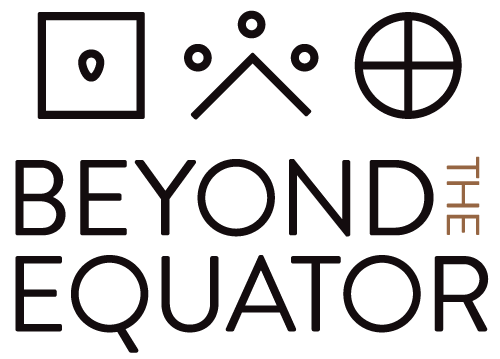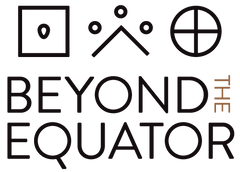Is that innocent-looking piece of toast with your breakfast actually doing your body harm? If you’ve discovered that gluten is wreaking havoc on your insides and it’s time to cut it, you may be feeling overwhelmed by what you can eat, what you can’t, and the best alternatives.
At Beyond The Equator, we aim to provide solutions to allergies and intolerances so you can still enjoy all your favorite foods without compromise. Our gluten-free Sunflower Seed Flower is just one part of this mission.
What Is Gluten?
Gluten is a naturally occurring protein that acts as a kind of glue that holds food together. This protein is mostly found in grains such as wheat, barley, and rye. As a result, gluten is present in many of our day-to-day food choices. Pasta, bread, cereal, pizza bases, muffins, cakes, and even beer and some medications all contain gluten in them as they are made from these grains.
Why Is Gluten An Issue For Some People?
Gluten is often labeled as being ‘bad’ for you, which is not entirely true. While it doesn’t add any valuable nutrition to your diet, for most people, it is completely harmless to consume.
However, should you have celiac disease or a gluten-sensitive skin disorder known as dermatitis herpetiformis, a gluten-free diet is recommended. While not expressly necessary it has been shown that a gluten-free diet may be helpful for some people with other conditions such as:
- Irritable bowel syndrome
- A neurological disorder, known as gluten ataxia
- Individuals with type 1 diabetes
- HIV-associated enteropathy (intestinal disease)
When gluten is consumed by someone with any of the above conditions it can trigger irritation to the small intestine, leading to cramps, diarrhea, and bloating. It can also lead to inflammation in the skin with associated rashes.
Celiac Disease And Gluten
In the case of celiac disease, gluten triggers an immune response that permanently damages the lining of the small intestine. This leads to the body being unable to adequately absorb nutrients from food and therefore creating deficiencies in essential vitamins and minerals.
According to a study carried out by The University Of Chicago:
“Celiac disease affects 1% of healthy, average Americans. That means at least 3 million people in our country are living with celiac disease—97% of them are undiagnosed.”
This equates to around one in every 133 people having celiac disease in the USA alone. When improperly managed, the associated deficiencies can cause long-term issues such as osteoporosis, infertility, nerve damage, and seizures.
Benefits Of A Gluten-Free Diet
Excluding gluten from your diet can have great health benefits, even if you do not have any gluten sensitivities or intolerances. While further studies need to be done into the exclusion of gluten, many people report:
- Improved energy levels
- Less bloating after meals
- Less joint inflammation
- Fewer headaches
- Improved mood
- Better skin and hair
- Fewer incidences of intestinal distress
Types Of Gluten-Free Flour
If you need or want to go gluten-free, stocking your pantry with gluten-free options can be confusing. Gone are the days of just a few gluten-free options at your local health food store, there are now hundreds of gluten-free options to choose from.
Gluten-free flour and gluten-free flour blends are no exception, so rather than have you stuck in the aisles of your grocery store poring over labels, we’ve rounded up and compared some for you. Some gluten-free flours come with xanthan gum added to assist in the binding of your cooking. If this is something you prefer to avoid, please check the labels carefully.
1. Almond Flour
Made from milled almonds, almond flour/meal is a slightly sweet and nutty wheat-free flour alternative. Favored for baking, almond flour creates dense, heavier cakes and bread. It is not suitable as a gluten-free 1 to 1 flour substitute in most recipes. Almond flour is not suitable for anyone with a tree nut allergy.
2. Bean Flours
Bean flours are Made by grinding chickpeas (garbanzo beans), soybeans, fava beans, black beans, or green peas. Bean flour is popular as a binding agent, in pasta making or crumbing food for frying. They tend to lend a noticeable ‘bean’ taste to food and therefore are best suited to savory cooking.
Should you also be intolerant to legumes, this flour will not be a suitable alternative for you.
3. Coconut Flour
Made from defatted coconut flesh, coconut flour is a light, fine powder high in fiber with a delicate coconut flavor. It is not recommended as a gluten-free 1 to 1 flour substitute, in baking too much coconut flour tends to lead to dry, hardened results.
4. Rice Flour
Made by grinding rice grains into a fine powder, rice flour is high in fiber and virtually tasteless - it also contains zero sugar. However, like coconut flour, too much can result in dry, hard baking. It is versatile and can be used for baking loaves of bread, cakes, and biscuits as well as making noodles or crumbing food for frying. It does tend to be used more as a thickener or binding agent than a gluten-free 1 to 1 flour substitute.
5. Oat Flour
Oat flour is a lightly sweet flour ideal for baking bread, cookies, and pancakes. Unfortunately, not all celiac or gluten intolerant individuals can consume oat flour. Some oat flours are not certified gluten-free and most physicians will still caution someone with celiac to limit their consumption of this flour.
6. Sunflower Seed Flour
Completely nut-free, legume-free, and oat-free, as well as being made on a production line free of 6 other top allergens, Beyond The Equator Sunflower Seed Flour, is the ideal, gluten-free all-rounder. Sunflower seed flour is made by grinding nutritionally dense sunflower seeds into a fine powder.
Ideal for cake baking, crumbing food for frying, pizza bases, in bread, muffins, and more, our Sunflower Seed Flour is the ideal allergen and gluten-free alternative flour.
Gluten-Free Doesn't Have To Mean Missing Out
Whether you have recently been advised to go gluten-free or it is a diet you have been practicing for years, our Sunflower Seed flour is designed to make eating well easier.
The added benefits of our flour being free of 7 other allergens, as well as being vegan, paleo, keto and whole 30 approved should have it at the top of your gluten-free shopping list.
Try Sunflower Seed Flour today, better health, made simple with Beyond The Equator.

